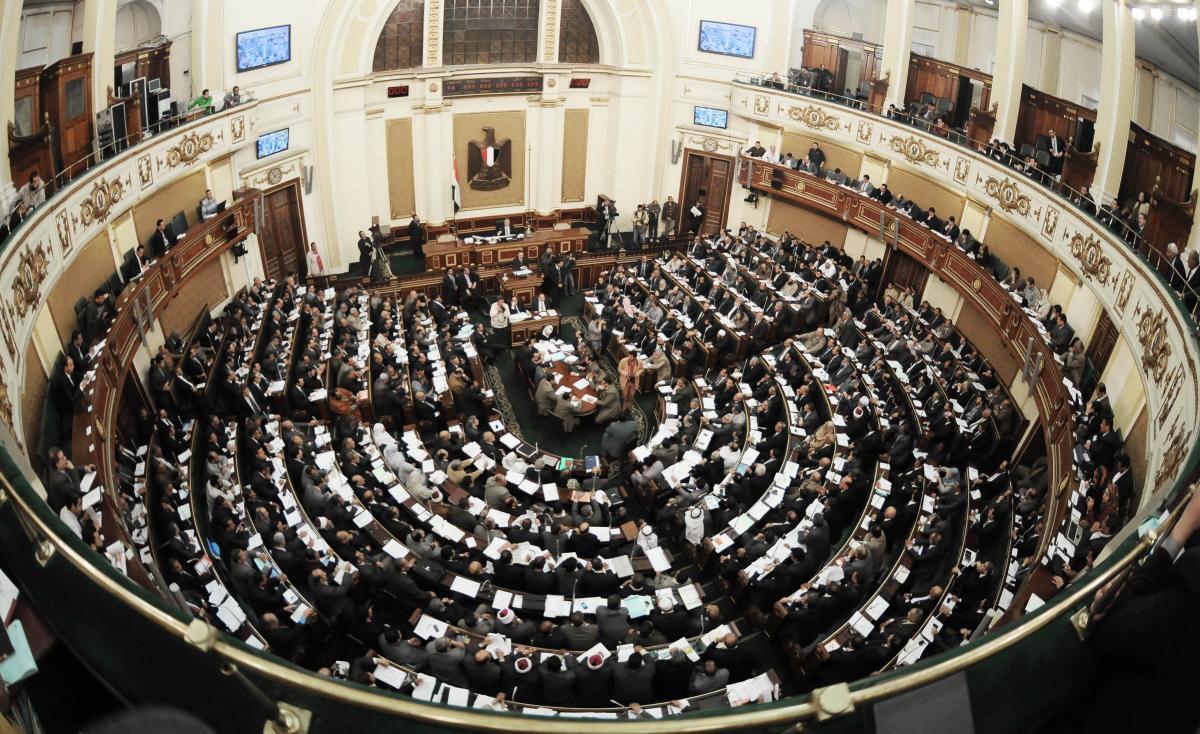In its latest session on Sunday, Egypt’s newly elected parliament has ratified a range of controversial laws that were issued by presidential decree following the inauguration of Abdel Fattah al-Sisi as president in June 2014.
The approved legislation includes the much debated “terrorist entities” law passed in February 2015, reports Ahram Online.
The law defines terrorist entities as “any association, organization, group or gang that practices, aims at or calls for destabilizing public order, endangers society’s well-being or its safety interests or endangers social unity by using violence, power, threats or acts of terrorism to achieve its goals.”
Met with strong criticism, commentators claim that the law is ambiguous and open to wide interpretation.
In response to the issuing of the law, several Egyptian human rights groups, including the Cairo Institute for Human Rights Studies and Alhaqanya Center for Law and Legal Profession, published a statement which condemns the law for facilitating repression of oppositional voices and the stifling of civil society.
According to the statement, the new legislation “undermines the freedom of peaceful assembly, the freedom to form civic associations and political parties, and freedom of the press, opinion, and expression.”
Due to the unclear nature of the definition of ‘terrorist entities’, the human rights groups described the law as a violation of Egypt’s constitution, a concern that is similarly held regarding several controversial articles in the Egyptian constitution.
However, in an interview with online magazine al-Monitor, law professor Mahmoud Kbeish said that the law is unambiguous and that groups engaged in peaceful oppositional activity would not be considered terrorist entities.
A group is defined as a terrorist entity “only if it uses violence, power, threats or acts of terrorist to achieve its goals,” Kbeish clarifies.
In addition to the terrorist entities law, another law was ratified on Sunday which also led to plenty of stirred controversy.
The second controversial ratified legislation grants the president the right to oust the top officials of four state financial and regulatory bodies. These bodies include the Central Bank of Egypt (CBE), the Administrative Control Authority (ACA), the Accountability State Authority (ASA) – which is Egypt’s central auditing agency – and the Egyptian Financial Supervisory Authority (EFSA).
Egyptian President Abdel Fattah al-Sisi described the four conditions for deposing these officials as “the existence of solid evidence that the official compromised national security, evidence that they are harming the country’s interests or other public figures, if they were proven morally incompetent, and if health conditions prevents them from performing their jobs,” writes Ahram Online.
The law is widely considered to have been issued to forcefully relief the head of the ASA Hisham Geneina off his duties. In a recent report, Egypt’s top auditor has accused various state institutions of corruption, including the powerful Interior Ministry, the Judges Club and the General Prosecution Office.
In an interview with Shorouk newspaper, Geneina said that he has been threatened by various actors connected to the state demanding of him to recant on his corruption statements.
Prior to the House of Representatives elections which ran from October to December 2015, and its opening session on January 10 this year, Egypt’s parliament had remained vacant for three years.
In 2012, it was dissolved by the country’s top court less than a year after it was elected in the first democratic parliamentary elections in Egypt’s history. Since then, laws have been issued by presidential decree.
The current parliament is dominated by coalitions considered loyal to incumbent President Sisi.







Comment (1)
[…] Egyptian Parliament Ratifies Controversial 'Terrorist Entities' Law In a recent report, Egypt's top auditor has accused various state institutions of corruption, including the powerful Interior Ministry, the Judges Club and the General Prosecution Office. In an interview with Shorouk newspaper, Geneina said that he has … Read more on Egyptian Streets […]